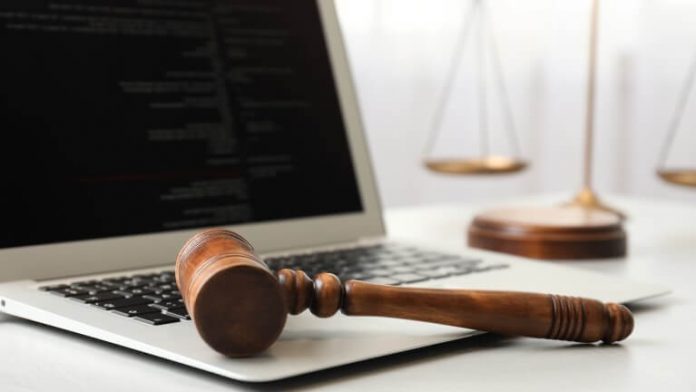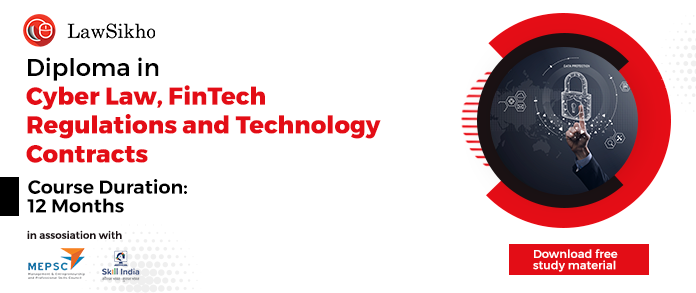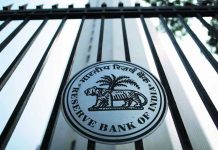This article is written by Varchaswa Dubey from JECRC University, Jaipur. This article is an exhaustive work reflecting the revolution caused by the internet in court proceedings and various other aspects of virtual court proceedings and freedom of media.
Table of Contents
Introduction
The COVID-19 pandemic has not only cracked the Indian economy but also its legal mechanism by a nationwide lockdown which was enforced to prevent the spread of Coronavirus, and to tackle this problem and deliver justice in urgent cases, The Supreme court of India initiated virtual conferencing in March, 2020.
The internet has administered a completely virtual legal mechanism and transformed the whole system onto a screen that may be accessed by the needy ones at lesser costs during the times of the COVID-19 pandemic. The internet has not only assisted in delivering justice to the unprivileged ones but also has helped in settling urgent disputes.
Origins of the internet and courts
One of the first references concerning virtual courtroom can be traced back to the study of Fredric I. Lederer, who said “In years to come it may be that we will use virtual courtrooms, ones without physical presence, and which exist only as Internet-type meeting places for disembodied individuals and electronic data exchange. This may even prove highly efficient and economical – but it will not be the same legal system we prize today.”
The initial case concerning the internet is Dr. Ashok v. Union Of India & Ors, (1997) where the court emphasized the significance of the internet regarding the collection of relevant data in a couple of minutes.
Later, in 2003, in the case of State Of Maharashtra v. Dr. Praful B. Desai (2003), the Supreme Court of India allowed evidence to be recorded through video conferencing in the presence of the accused and held that such evidence fulfils the requirement of Section 273 of the Criminal Procedure Code, 1973.
The foundations of e-court can be traced back to the year 2005 when an E-Committee constituted by the government of India conceptualized “National Policy and Action Plan for Implementation of Information and Communication Technology (ICT) in the Indian Judiciary – 2005”.
Advantages of virtual court proceedings
The internet has highly influenced the court hearings by:
- Continuing court hearings of urgent matters even during a pandemic,
- Transforming the system into a cost-effective one by eliminating travel expenses,
- Eliminating unnecessary court traffic, long waiting lines,
- Flexibility in work hours of the court,
- Instant access of relevant documents,
- Uniting different legal teams who are geographically dispersed.
Disadvantages of virtual court proceedings
The disadvantages of virtual court proceedings include:
- Costs incurred by the advocates as many advocates don’t possess smartphones and unlimited data,
- Judges losing their patience while adapting to virtual court proceedings and scolding a young lawyer, unnecessary noise disturbances of traffic, echoing, and unintentional mistakes of lawyer,
- Ineffectiveness of a cross-examination of witness/accused in criminal cases.
The internet and the freedom of media
The freedom of media is an essential part of a democratic country like India, and it is a part of Article 19(1)(a) of the Constitution of India, on the other hand, the internet has been declared a fundamental right while interpreting Article 21 of the Constitution of India.
The internet has played a significant role in numerous instances like the Delhi rape case, (2012) Jessica Lal murder case (1999), etc on the other hand the social media has also affected the delivery of justice by highly influencing some cases and destroyed the career of some individuals merely on the grounds of them being accused.
Advantages of such freedom
The freedom of media has certain advantages and is an essential characteristic of a democratic country. Apart from traditional methods of publication like newspaper and radio, media these days take the assistance of the internet in providing news. The advantages of such news include:
- A faster and efficient method of spreading news,
- The news can reach multiple users at the same time, including remote areas,
- The news puts restrictions on the unlawful acts in the society,
- The content of such news is not limited and can flow smoothly across the internet,
- Such news not only results in fair elections but also a fair democracy.
Disadvantages of such freedom
The internet has certainly challenged the right of freedom of speech and expression because it is empowered with new techniques of expression. The internet and freedom of media have their disadvantages like:
- The internet not only initiates media trials on social media but also infringes administration of justice,
- Character assassination of the accused,
- The free flow of information has raised a call for content regulation on the internet,
- Such information may be potentially harmful to minors,
- The internet also promotes fake news which leads to religious clashes and riots,
- The internet also promotes hatred towards other communities and religion,
- The Internet many times only emphasizes what’s in the tread and tends to ignore other relevant and genuine news.
Does freedom of the press include the freedom to report on court proceedings
While rejecting a plea of the Election Commission of India, the Supreme Court of India held “Freedom of speech and expression extends to reporting the proceedings of judicial institutions as well”. The Hon’ble Court further held citizens have the right to know what happens in judicial proceedings.
Certainly, freedom to report on court proceedings falls within the ambit of freedom of press however such reporting must be fair and accurate throughout legal proceedings, protection of identity and privacy of parties to a case, and no independent investigation and media trials must be practiced, as these factors affect the due course of justice.
Limitations of court reporting
The media usually reports what’s in the best interest of the public but the powers to report or publish anything is not absolute and attracts certain restrictions, like :
- No reporting of information of the identity of a victim of sexual assault,
- No reporting of information of the identity of friends, family, or relatives of a victim of sexual assault, or any criminal who is not associated with the case,
- No reporting of information of any judicial officer tends to obstruct the due course of justice. Such information may attract provisions of Contempt of Courts, Act, 1971.
Section 228A of the Indian Penal Code, 1860, reserves the provision of protecting the identity of a victim of rape and imposes a punishment of up to 2 years and a fine for the violators of the section. Section 327 of Code of Criminal Procedure, 1973, provides for the procedure of open court but also states that such provisions do not apply to cases of sexual offences.
Rise of digital reporting and live-streaming of court proceedings
In the case of Swapnil Tripathi v. The Supreme Court of India (2018), the Supreme Court of India allowed live streaming of court proceedings for the larger public interest. The Court further held that live-streaming of proceedings was crucial to the dissemination of knowledge about judicial proceedings and granting full access to justice.
The Supreme Court of India has also considered virtual court hearings as competent as open court hearings.
Recently, the e-committee of The Supreme Court of India has released its Draft Model Rules for live streaming of judicial proceedings and recording of court proceedings to spread increased transparency, inclusiveness, and access to justice.
A writ petition was filed in 2018 for seeking live streaming of court proceedings, and the Supreme Court of India held that live streaming in the larger public interest. The Court further held that recording and live streaming the proceedings of a case concerning public importance eliminates the possibility of any mistakes from such proceedings.
Future of virtual court proceedings
The Parliament of India, Rajya Sabha, in its One Hundred-Third Report interim report on the functioning of virtual courts/ court proceedings through video conferencing, recommended that the concept of virtual court proceedings must also cover the field of arbitration, conciliation, and summary trials which will reduce the travel expenses. The committee was also of the belief that live-streaming of court proceedings, especially which concern constitutional and national importance, will enhance transparency and openness.
Recently, the Supreme court of India has bestowed rules on live streaming and recording of court proceedings to promote transparency and justice for the public at large. The court also held that personal information of concerned parties including relatives of the parties will be deleted or muted during such proceedings and no media shall record, share or disseminate such proceedings.
According to a news article, the district courts have heard 45.73 Lakh cases till December 2020 through video conferencing, The High Courts heard 20.60 Lakh cases and the Supreme Court of India heard 52,353 cases till January 31, 2021. This may be referred to as the Indian judiciary adapting to the new normal and may continue the same.
International scenario
The COVID-19 pandemic has not only affected the Indian judiciary but the judiciary across the globe. To tackle this issue and deliver justice, different countries have adopted different methods like:
- In England and Wales, although in remote areas, only physical hearings took place, the country rapidly switched to digital platforms like Skype, Zoom, etc. and the Supreme Court continued to deliver judgment through video conferencing,
- In the United Arab Emirates, from April 19, 2020, all the legal proceedings took place virtually on Microsoft teams,
- In the United States of America, by enacting an Act, on March 27, allowed video conferencing in certain judicial matters, the US Supreme Court witnessed a limited number of cases that were earlier postponed,
- In France, the physical court hearings were suspended on March 16, 2020, however urgent cases of pre-trial detention and judicial review measures were entertained.
Challenges to overcome
The virtual court has its issues due to which virtual proceedings may act as a barrier in due course of justice and may affect the ordinary functioning court of the court. Such challenges include:
- A significant number of advocates are situated in remote areas where the infrastructure is not competent enough to bear virtual court proceedings and therefore, such infrastructure must be upgraded,
- The internet facilities are still not available in many areas, therefore internet must be provided in such areas,
- A majority of advocates are not familiar with the concept of technology and therefore, the necessary awareness and quality education must be provided to such advocates,
- Many advocates also don’t know how to access a computer and a smartphone causing a barrier to the proposed concept of a virtual court hearing, and therefore, the concerned districts or states must resolve this issue by providing educational camps,
- The Bar Council of India may introduce Computer as a subject in a three/five-year law course to deliver necessary technological education,
- The infrastructure of the Indian judiciary, especially of district courts, is also not upgraded, and therefore, the judiciary must also be made familiar with the concept of virtual court hearings
Oral observations of a court part of the process of judging
The Supreme Court of India while rejecting the plea of the Election Commission of India, also held oral observations are not a part of the official judicial record as the actual reflection of the opinion of judicial proceedings is bestowed in its judgments and orders.
Oral observations are not a part of the judgment or any other record however such observations are based on the findings of the judge in the case and such observations attract more responsibility for the judicial officers and promote the public’s confidence and reliability in the legal process.
The oral observations of judicial officers have no legal sanctity and therefore the Supreme Court of India refused to ban the media from reporting oral observations of the judges.
Conclusion
The contemporary scenario of virtual court hearings is overtaking the traditional methods of court procedure with the assistance of the internet yet the legal fraternity is struggling to transform the whole mechanism into a virtual one and to achieve it, the government and judiciary must work in cooperation with each other. Such transformation will not only upgrade the infrastructure of the legal fraternity but will also promote justice to the needy ones.
References
- https://www.barandbench.com/news/litigation/rules-for-live-streaming-and-recording-of-court-proceedings
- https://cdnbbsr.s3waas.gov.in/s388ef51f0bf911e452e8dbb1d807a81ab/uploads/2021/06/2021060752.pdf
- https://www.lawyerscollective.org/wp-content/uploads/2018/01/watermarked_WP-Live-Streaming.pdf
LawSikho has created a telegram group for exchanging legal knowledge, referrals, and various opportunities. You can click on this link and join:
 Serato DJ Crack 2025Serato DJ PRO Crack
Serato DJ Crack 2025Serato DJ PRO Crack











 Allow notifications
Allow notifications


